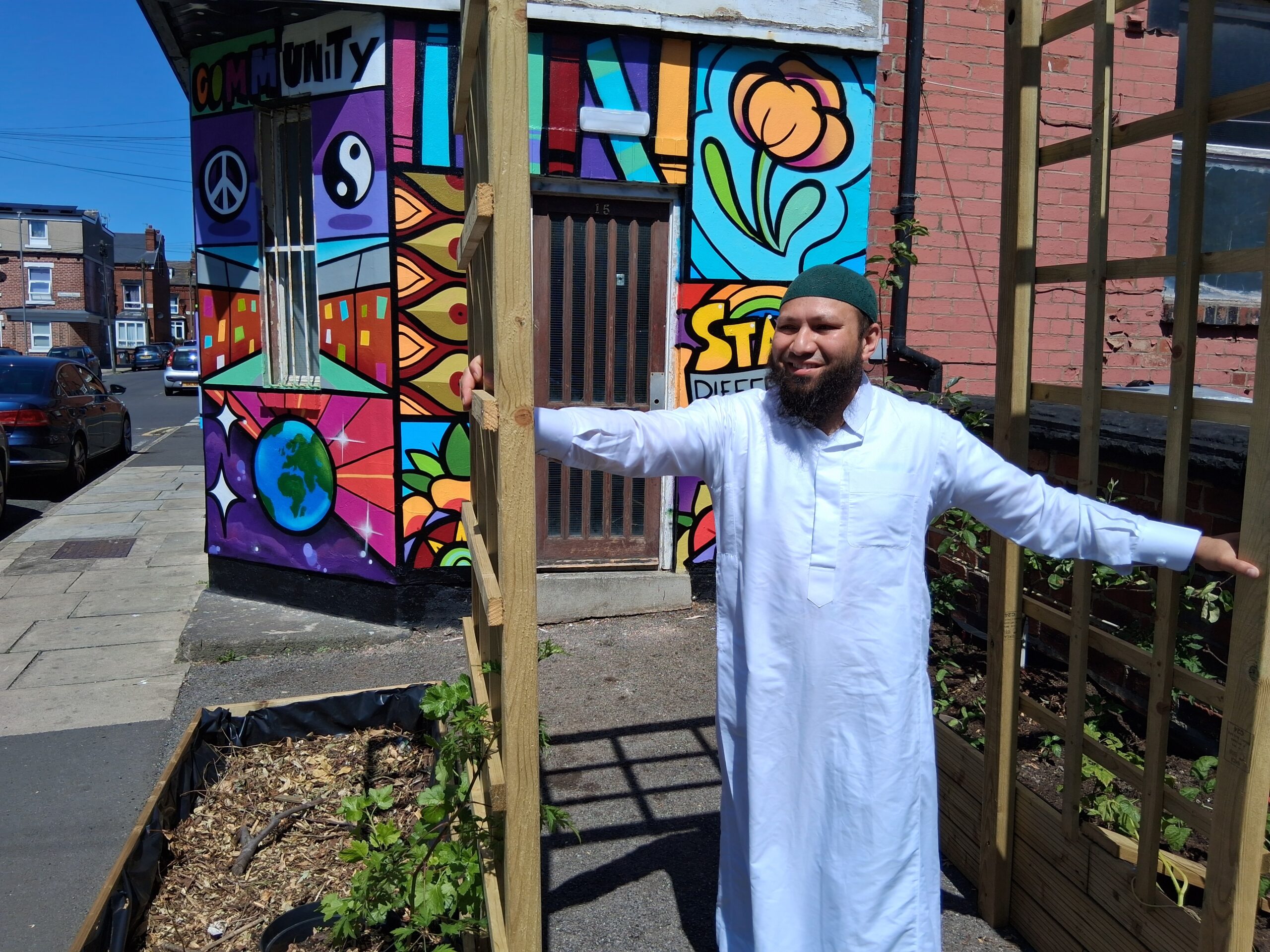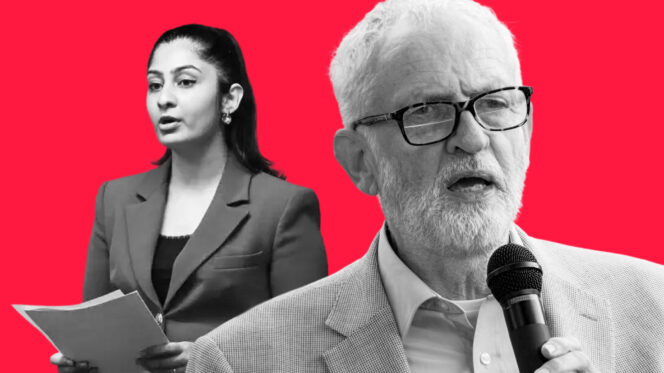Can Mothin Ali Make the Greens a Working-Class Party?
‘Thinking about climate change is a luxury problem.’
by Craig Gent
23 July 2025

If the election of four Green MPs in 2024 seemed a pleasant surprise on the night of Keir Starmer’s loveless landslide, the party’s ensuing invisibility on the national stage seems a more perplexing one.
In quadrupling the Greens’ previous electoral best, many on the left hoped the party had finally cracked its political strategy, unleashing an unignorable ecological agenda onto British politics after the dampening of 2014’s “green surge” and the gutting of the Corbynist green new deal that never was.
Yet despite Starmer’s ever-declining popularity, the Greens have struggled to cut through. Little surprise, then, that the ongoing Green leadership race is largely being fought on questions of strategy. In particular, the party’s existing Target to Win playbook – whereby resources are focussed on a handful of seats after gaining council representation around local issues – is coming under scrutiny. Eco-populist leadership contender Zack Polanski and Greens Organise, a campaign group advocating bottom-up community organising, are leading the charge on this.
Mothin Ali, a contender for deputy leader, promises to keep his pick for the leadership to himself, citing his desire to work as a team with whoever wins. In addition to Polanski, the election is being contested by MPs Adrian Ramsay and Ellie Chowns on a joint ticket, and Green party rules state that if Polanski takes the top job solo, there will be two deputy co-leaders elected.
Yet it is clear that Ali is a critic of Target to Win. “It was effective last year to get those breakthroughs, because we spent a hell of a lot of money on those [Westminster] seats, we put a lot of resources in,” he tells Novara Media over mango lassis in a Leeds chai cafe. “But if we want to move nationally, if we want to be a serious party for the next [general] elections, I don’t think that’s a sustainable approach. It has to be a real people-powered movement, just like the one we did here… this has to be done on a national scale.”
Ali, a councillor for Gipton and Harehills in inner city Leeds elected in 2024’s local elections, rose to prominence first when he was dragged through the rightwing press for a pro-Palestinian exclamation on election night, and subsequently when he was dubbed the “Hero of Harehills”, including by some of those same outlets, for his role in calming disturbances that saw a police car overturned and a double-decker bus burning out of control in a dense residential area among thousands of onlookers.
Ali’s role in the leading the community response to the Harehills disorder, alongside his own clear election win despite not being a Green target, undoubtedly lends credibility to his claim to be able to tap into the realities of life in working-class inner cities, and it is this authenticity he aims to bring to the heart of the Green party leadership.
“I think that’s one of the things the Green party has been lacking for a long time – you know, an authentic working-class voice, someone who can actually speak to ordinary people on a level that identifies with the same kind of problems that they’re going through,” he says. “Look, we’ve gone through problems of living in ghettos, living in poor housing, living with damp on the wall, living with the threat of eviction.
“There’s so many millions of people going through that same thing. We need someone who can speak at that level, but take their concerns and amplify them on a national scale. And that’s what I’m hoping to do – that real, empathetic kind of approach from the grassroots.”
The Green leadership elections come at a time when the question of leftwing electoral projects are rearing their head once more. Two weeks before Novara Media speaks to Ali, former Labour MP Zarah Sultana launched a mailing list and announced her intention to co-lead a new party with Jeremy Corbyn, apparently to Corbyn’s confusion. Meanwhile, figures seen by Novara Media suggest both Polanski and Ali’s bids for leader and deputy leader, respectively, led to spikes in new joiners to the Greens.
“I’ve got a huge amount of respect for Jeremy Corbyn,” says Ali. “He’s one of the inspirations behind me being politically active.”
Still, Ali would prefer for Corbyn and co to join the Greens, especially to ensure the left’s chances of stopping Reform. “There’s so much that unites us,” he says. “Our last year’s manifesto was pretty much the 2019 Corbyn manifesto. [There’s a] little bit more focus on climate, but there’s so much overlap.
“The worry is – and it’s the historic worry about the left – we’ve been the means of our own destruction. But if we could just get our acts together, we’d be so powerful. I’d love them to join us. I’d welcome them, but if they don’t want to, then maybe we could find a way of working together, because the only way we’re going to stop the far right is if the left come together.”
And if there were suddenly thousands of young people flooding into the Green party, a la Corbyn’s Labour? “I would absolutely love that,” he grins.
Ali argues the left can be prone to purity testing over storytelling, with the effect of creating divisions where there ought to be coalitions. “I met someone in town a couple of days ago, and I was telling them about the Green leadership campaign and how we’re trying to get left-leaning people involved,” he tells Novara Media. “And the reply was, ‘I’m a socialist, I’d never join the Greens.’ I’m like, ‘I’m a socialist, but I’m in the Greens.’”
Ali says that since he joined in 2020, he has always found the Green party to be “a very left-leaning party [with] a lot of good people in it”. Still, there is little doubt that the Greens’ seemingly middle-class image and makeup puts off some on the left who argue for the necessity of a class politics both for reorganising society and saving the planet. Ali argues this is a struggle worth having within the Green party.
“I think for too long the Green party has been very southern-facing, very middle class-facing – or from the outside, when you look at it, it looks quite middle class,” he says. “Thinking about climate change, for me it’s a luxury problem, because first of all you’ve got to have the time to think about climate change rather than think about where you’re going to get your next meal from, which is a problem for a lot of people in wards like mine.
“In reality, people [here] are going to suffer [from climate change]. So these people need effective representation within the party.”
Ali says since being elected as a councillor he has campaigned in inner city areas across the country where people are fed up with the two-party system. The response, he argues, should be to promote self-empowerment within communities, rather than simply coming in with a pitch.
“There’s a lot of people coming into communities and saying, ‘We can do something for you,’ rather than saying, ‘Look, you can do this,’” he says. “‘You come out and you build this up, and then you come out and power this movement,’ and that’s the thing that I want to really emphasise throughout the Green party.”
Craig Gent is the author of Cyberboss: The Rise of Algorithmic Management and the New Struggle for Control at Work (Verso, 2024) and was formerly a director at Novara Media.


